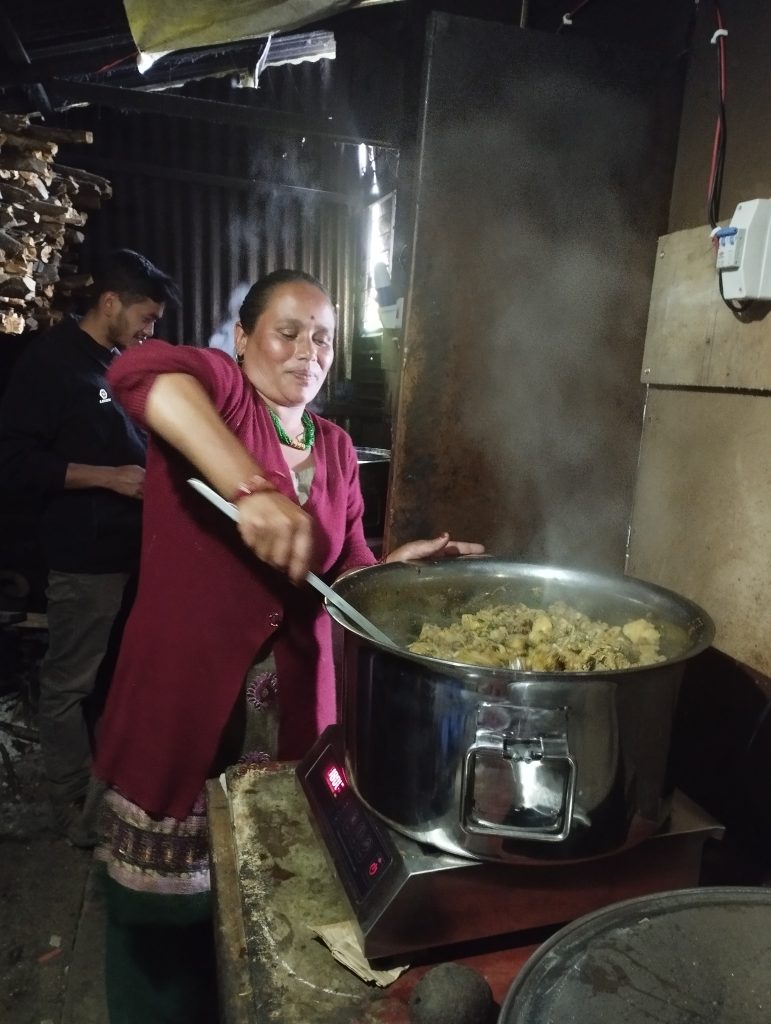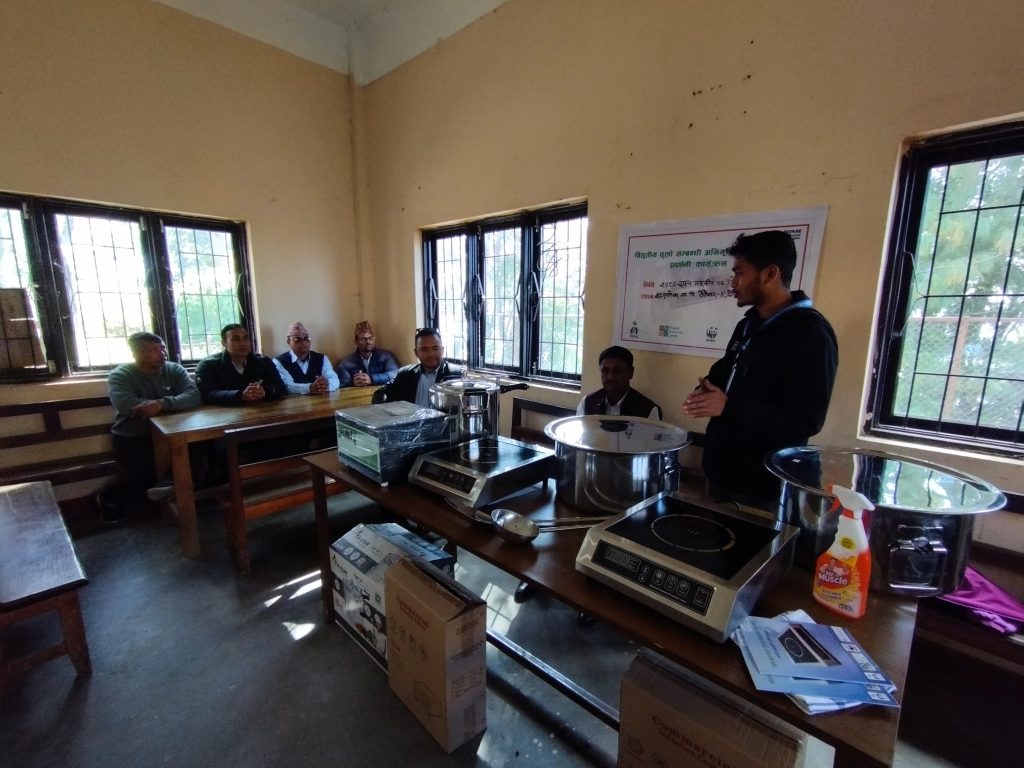Transforming School Kitchens: Embracing clean cooking energy for a sustainable future
Authors: Alina Dangol and Gaurab Singh Hamal
The government schools of Nepal have a mid-day feeding program since 2015 A.D, which provides a mid-day lunch for the primary grade’s students. These governmental schools rely on traditional biomass and fossil fuel-based energy for preparation. These fuels impact health and the environment and have a high carbon footprint. The best alternative for these fuels is renewable, clean, and highly efficient electric energy.
To mitigate climate change’s impact, shift towards eco-friendly cooking practices, improving the heating events and kitchen’s air quality, and fostering long-term sustainability, with the help of WWF Nepal, PEEDA has introduced Institutional Electric cook-stoves in the eight government schools of the Baiteshwor Rural Municipality, Dolakha. It is anticipated that this initiative will increase electricity demand, which is a vital part of the Government of Nepal’s energy strategy.
Prior, PEEDA studied the current situation of the kitchen to understand the types of stoves, fuels and utensils being used, the number of students to be fed, the types of meals prepared, and the electric wiring system. Schools cooked food in traditional biomass stoves and LPG stoves. The significant meals prepared are Thupka, Jaulo, Eggs, Chickpeas, Noodles, Haluwa, and Samosa. The baseline study estimated that these eight schools consume 145 cylinders of LPG and 30,000 kg of firewood annually.

After the baseline study, PEEDA supported two 3,500 W commercial induction stoves and three inductive utensils containing 32L of Dekchi and 22L of Pressure cooker. Wiring system of the school was also upgraded. Since the area has a fluctuating voltage, a voltage regulator was installed to safeguard the stove for optimum use. Since electric cooking is in the infant stage for Baiteshwor Rural Municipality, PEEDA also demonstrated the technology with live cooking on these stoves to the kitchen operators, school management committee members, teachers, students, and other stakeholders.
As a result, 1,308 students and staff will directly benefit from the project throughout the year. As observed in the PEEDA study, with the current LPG price in the school area, which is around Rs. 2,500 per cylinder, the cost of cooking will be reduced by almost 50% with the use of an e-cooking device provided by the project. This transition alleviates the burden of resource consumption, ensuring a more ecologically responsible footprint for the school.

The success of these interventions for larger kitchens could be replicated for commercial eateries, cutting off the use of huge amounts of firewood and exporting fossil-based fuels, making Nepal able to sustain itself. Furthermore, the ripple effect of this change extends beyond the institution itself, permeating into the wider community. The reduction in carbon emissions and deforestation, coupled with the potential for cost savings, paints a promising picture of long-term positive outcomes.
